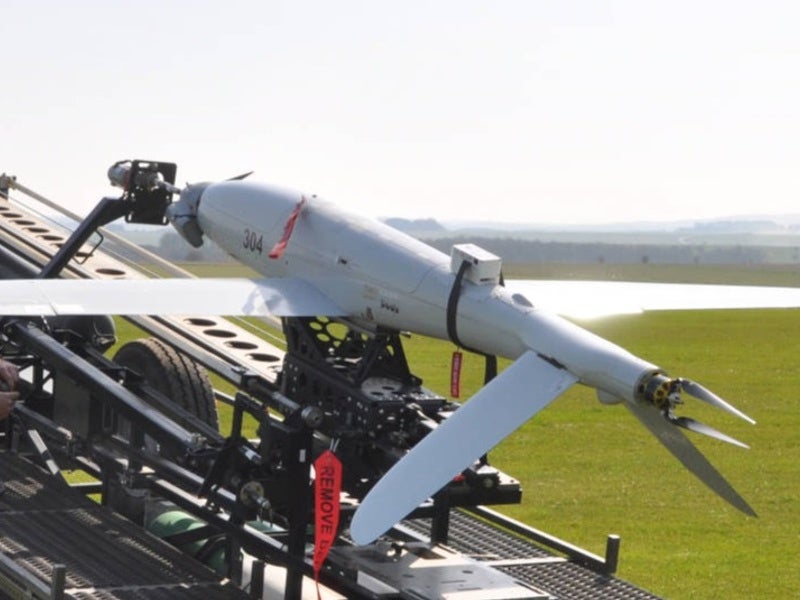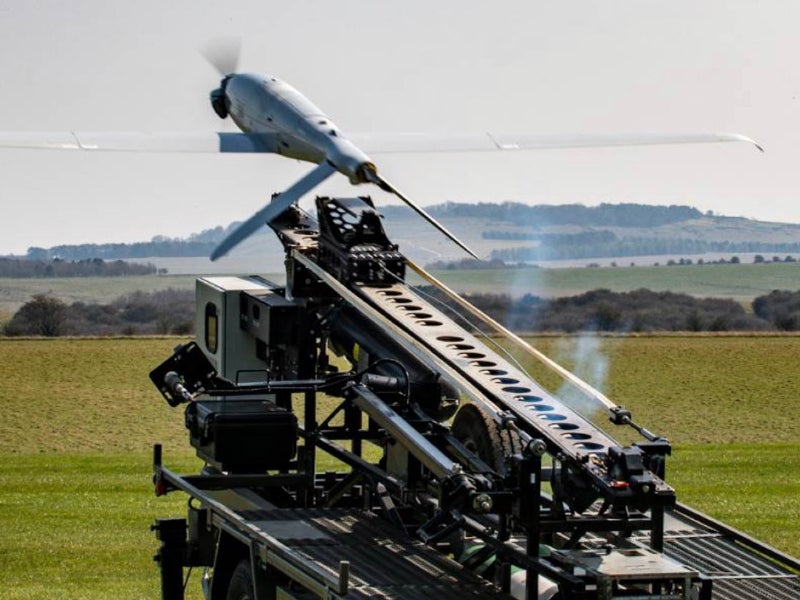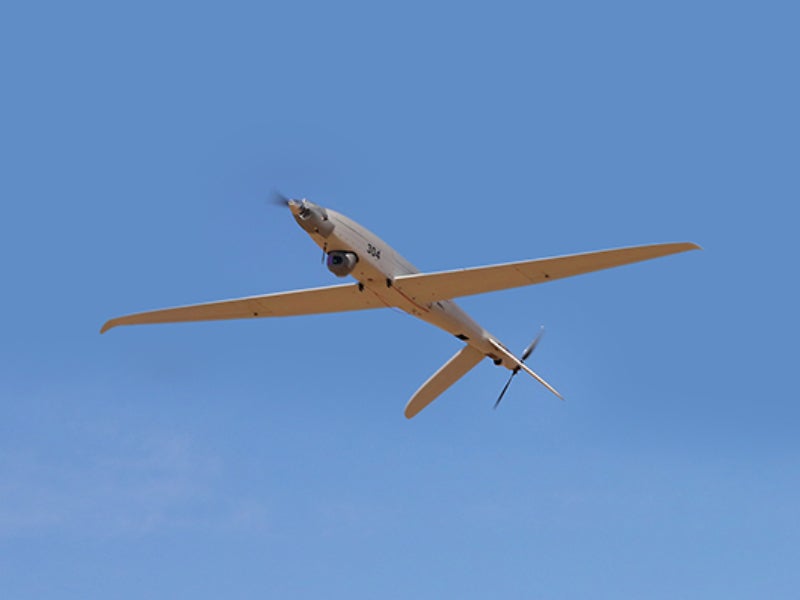Skylark 3 Hybrid is a tactical mini unmanned aircraft system (UAS) being developed by Elbit Systems, an Israeli defence electronics company. It is based on Elbit Systems’ Skylark™ family, which has been in service with more than 30 international customers.
It is the latest member of Elbit’s comprehensive range of unmanned aerial vehicles (UAVs), which include Hermes 900, Hermes 450, Skystriker, Magni, and Thor.
Designed as a covertly operated UAS, Skylark 3 Hybrid can arrive quickly at the area of interest and operate in silent mode. With a long endurance operation, it can provide real-time, day and night intelligence to operators.
Elbit Systems showcased Skylark 3 Hybrid at Singapore Airshow 2022 held in February 2022.
Skylark 3 Hybrid demonstration flights
Elbit Systems UK, a subsidiary of Elbit Systems, conducted a series of demonstrations of the UAS at RAF Upavon in Wiltshire, UK, in March 2022. The UAS was flown several times to support the Royal Air Force’s (RAF) Rapid Capabilities Office’s (RCO) future concept development programme.
The trials evaluated the performance of Skylark 3 Hybrid to assess its potential alongside other UAVs for the next phase of programmed activity. The UK’s Civil Aviation Authority (CAA) supported Elbit to conduct the trials in civil airspace.
The demonstrations of Skylark 3 Hybrid are in line with Elbit Systems UK’s strategy to support RAF’s goals for future capabilities, while developing environmentally-responsible and energy-efficient methods to maximise the UAV’s endurance.
Skylark 3 Hybrid design and features
Skylark 3 Hybrid is a fixed-wing UAV powered by a new hybrid propulsion system integrating both electric and internal combustion engines. The system has been designed to operate for up to 20 hours in harsh conditions.
The unmanned aerial vehicle is easy to operate as it can take off and land autonomously. It is runway-independent and requires no infrastructure for take-off and landing. Furthermore, it can be rapidly deployed and operated by a crew of two. A pneumatic launcher is used for launching the UAV from a vehicle or a vessel.
The UAV’s long endurance provides forces with greater hovering capacity to execute the same mission with a few unmanned aircraft.
The Skylark 3 Hybrid UAS has a wingspan of 4.7m (15.4ft), while its maximum take-off weight is 48kg (105.8lb).
Payloads
The UAS can carry a payload that includes high-resolution gimbaled and stabilised dual electro-optical/infrared (EO/IR) sensors as well as video analytics, electronic intelligence (ELINT), and communications intelligence (COMINT) payloads.
Mission capabilities of Skylark 3 Hybrid
The dual EO/IR payloads aboard the UAS provide advanced mission capabilities to facilitate a range of operations and applications such as intelligence, surveillance, target acquisition and reconnaissance (ISTAR), force and convoy protection, protection of strategic infrastructure assets, search and rescue (SAR), border patrol and security.
Two Skylark 3 Hybrids can be assigned on a single mission simultaneously and managed by a shared ground control station. The UAV comes with advanced features such as ground stations handover, areal hot-swap and remote video terminals.
It can be deployed at division, brigade and battalion levels and is optimised for both dismounted and vehicle-based operations.
Propulsion and performance
The internal combustion engine of the hybrid propulsion system will allow the UAV to rapidly fly to the area of interest. The propulsion employs an electrical engine to loiter above the designated location in silent mode.
Skylark 3 Hybrid’s twin-engine architecture provides back-up, offering improved mission reliability, redundancy and performance, and an extra layer of safety.
The UAS can reach a maximum altitude of 12,000ft (3,657.6m) and a maximum range of 120km (74.5mi).






